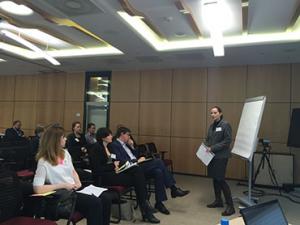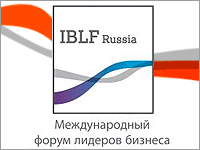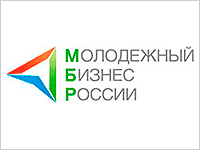 10.04.2015
10.04.2015
Round table “Early Identification of Compliance Risks at Representative and Branch Offices: Development of Remote Compliance Management”
On April 8, 2015, IBLF Russia, supported by Hilti and Baker&McKenzie conducted round table “Early Identification of Compliance Risks at Representative and Branch Offices: Development of Remote Compliance Management”.
Boris Tkachenko, Head of IBLF Russia, acted as the moderator and addressed the audience with a welcome speech: “In global economic environment, the multinational companies are frequently facing intrinsic extraordinary cultural and business practice traditions in the countries of presence that do not fit in the pattern of common business standards. However you can’t set up a compliance section at each regional affiliate. What is the way to establish the early identification and management of compliance risks so that it worked efficiently though in a distance? What is the way to ensure timely informing the headquarters of misconduct by a contractor or an affiliate employee?” Boris Tkachenko encouraged the participants to put forward their questions to the speakers and to be fully engaged in the discussion.
Anton Subbot, Senior Lawyer at Baker&McKenzie greeted the participants on behalf of the event host.
In keeping with the agenda, Tim Stanley, Managing Director Russia/CIS, Control Risks, first spoke on the topic “Contractor Screening and Due Diligence – best practices, local challenges”. Control Risks has a long-term practical experience in contractor screening for corruption, compliance and other risks and works successfully worldwide. Tim Stanley related briefly on the experts’ focus areas in contractor screening, the sources of information and data analysis. His report was followed by detailed Q&A session.
The next speaker, Andrey Zakharov, Senior Regional Compliance Manager at General Electric Russia/CIS, explored the topic “Compliance tool kit for early detection and prevention of misconduct by employees at regional branches and representative offices”. Through his creative approach, Andrey suggested that the audience made an imaginative excursion to a Russian remote provincial town of Turukhansk. What is the way of life and work at the Turukhansk regional branch? What is the impact of the town remote location, underpopulation and limited stuff on the work style? What other factors influence the branch employees’ behavior? Having done this imaginary experiment together with Andrey, the participants revealed restricted communication channel available to a remote branch employee, his/her fear of losing prestigious job, specific features of local official authorities and many other factors determining employees’ behavior. The complexity of the situation unfolded in its entirety, and so Andrey suggested that compliance officers shall not only use the standard communication channels (conference calls, hot line, video trainings), but to leverage actively the information provided by the other function managers (finance, HR, manufacturing and so on), to equip each professional visiting a regional branch with a basic compliance “package” in order to use every visit of a HQ representative to convey the key compliance principles, to create cross-function compliance network, to add compliance practices and tests to HR, Sales or any other sections’ toolkit.
Olga Tyschyuk, Internal Audit/Compliance Manager, Hilti, told about the other risk group which is Contractors (presentation). Operating in construction business that is considered to be one of the most complicated and vulnerable in the context of compliance, Hilti strictly adheres to its corporate compliance policy. “Any employee in our company will rather give up a profitable contract than violate any of compliance standards. Moreover this culture is being supported by the management at all levels.” The company sells construction equipment through dealers and has a wide network of partners throughout Russia. It undertakes regular on-site contractor audits, carefully selects and screens potential dealers, conducts regular trainings for all contractors and includes Hilti compliance standards onto the partnership contracts as a binding provision for contractor party.
The role of compliance officer in the process of corporate production localisation was the main topic of the report by Anna Pavlova, Chief Legal Counsel, Emerson. In particular, Anna shared her company’s experience in liaising with public officials in Chelyabinsk during the construction of Emerson plant in this region. She told about Emerson tender procedure of the construction contractor selection and compliance-related approach applied in the company for this project and worldwide. All contractors undergo regular checks implemented by corporate compliance officers and lawyers. “Thus no-one can debate the decision of the Legal Department if a contract with counteragent has been rejected. Everyone including top management is aware of and supports the rule that if there is anything that raises lawyers’ suspicion and a contract is being pulled down, such decision is ultimate irrespective whatever profitable can be the contract.”
The second part of the round table was conducted in the form of a discussion “Development of Remote Compliance Management” (discussion), moderated by Elena Abramova, Business Standards programme manager, IBLF Russia. In the course of spirited discussion, the participants at the round table described key issues and barriers hindering efficient remote compliance management, and then all together, drafted potential actions and measures to overcome the discovered problems.




